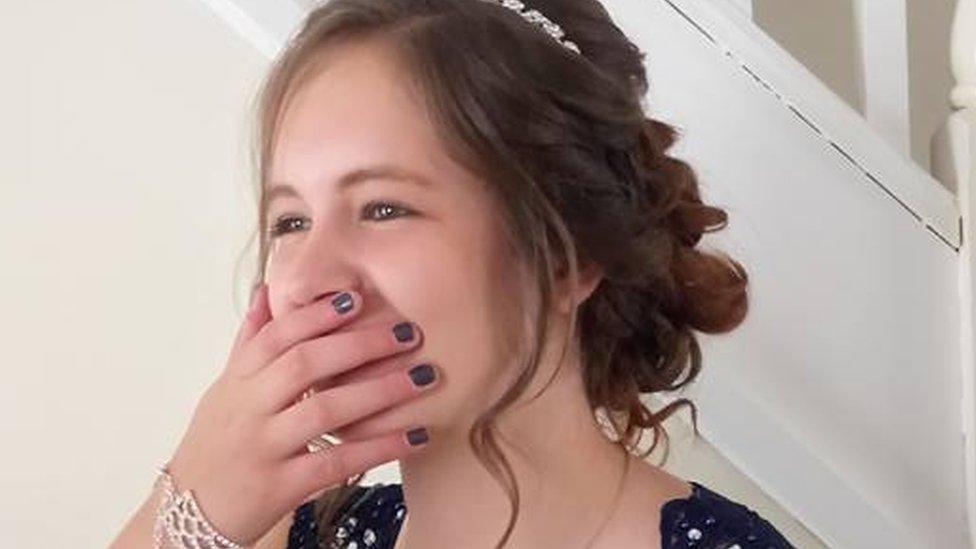North East Ambulance Service apologises to families
- Published
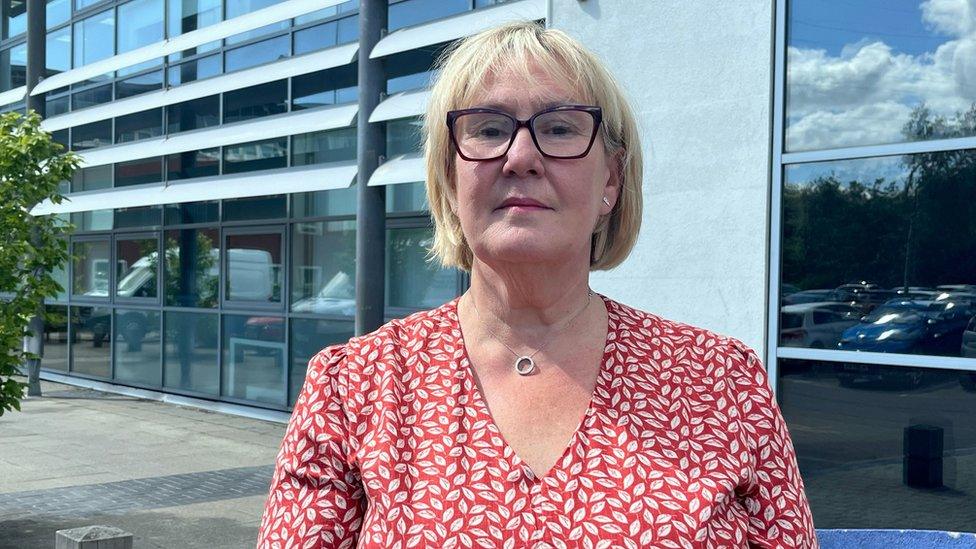
Helen Ray said: "Each family has received an unreserved apology from me on behalf of the trust."
An ambulance service has apologised to families following a review into claims it covered up errors by paramedics and withheld evidence from coroners.
The families of a teenager and a 62-year-old man were not told paramedics' responses were being investigated by North East Ambulance Service (NEAS).
The deaths, in 2018 and 2019, were raised by a whistleblower last year.
NEAS chief executive Helen Ray said she was sorry "for any distress caused to the families" by past mistakes.
Among the findings of the independent review carried out by Dame Marianne Griffiths, were inaccuracies in information provided to the coroner, employees who were "fearful of speaking up" and "poor behaviour by senior staff".
The study, commissioned by the former health secretary Sajid Javid in August, examined four of the five cases that were highlighted by the whistleblower, initially in The Sunday Times.
It found two bereaved families were left in the dark about investigations into the response of paramedics called to help their loved ones.
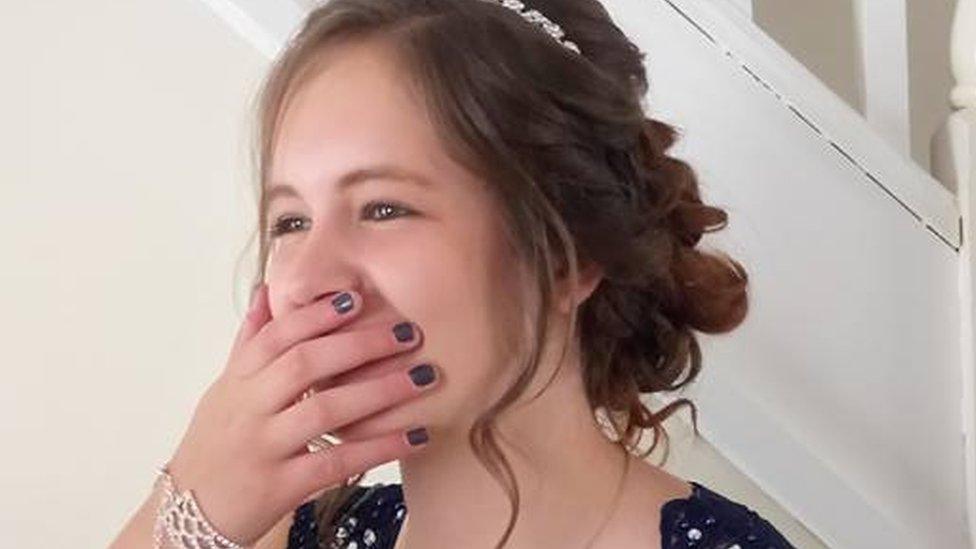
Quinn Milburn-Beadle was declared dead by paramedic Gavin Wood, who did not follow guidelines
The family of 17-year-old Quinn Milburn-Beadle, from Shildon, County Durham, only found out what happened when a family liaison officer visited a few days before her inquest in April 2019.
The review said a rapid response paramedic - who has since been struck off - "did not adhere to national and local guidelines" in stopping CPR and declaring her dead.
It found that "however small the probability of recovering was" the teenager "deserved that chance and so did her family". A narrative verdict was recorded by the coroner almost two years after her death.
In the case of 62-year-old Peter Coates from Dormanstown near Redcar, he had called 999 in March 2019 when a power cut meant his home oxygen supply stopped working. The review discovered crews arrived 36 minutes after his call.
It found one team had stopped to refuel the ambulance en route and another was unable to make the three-minute journey because a power cut had prevented the gates at the ambulance station from opening.
Mr Coates' family, who eventually learned what happened via the whistleblower, believe if the crews had reached him sooner "he might still be alive".
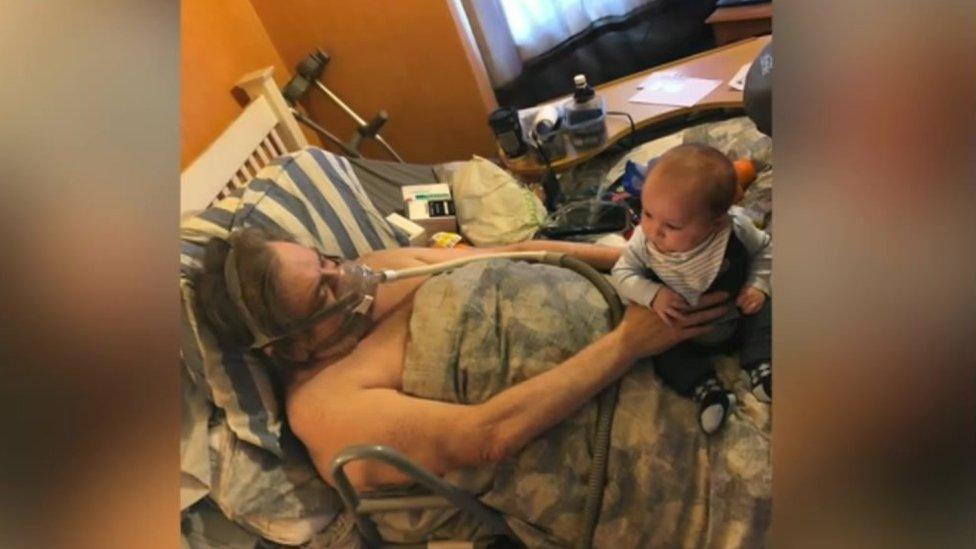
Peter Coates died before an ambulance arrived at his home
Another call highlighted in the report was in November 2019 when a 62-year-old man had fallen on to a wooden laundry basket.
Despite his niece telling 999 operators she feared he had suffered a punctured lung and was struggling to breathe, it took more than an hour for an ambulance to arrive. In that time the man was in cardiac arrest and died.
The review found there was a "trend" for NEAS to provide coroners with "confusing or conflated" information rather than the original material and there was "no independent communications with families" which would have "lessened the trauma".
'Anxious, frustrated and stressed'
It also found opportunities for learning were missed, with established processes not being followed by NEAS.
It noted "leadership dysfunction" and "antagonism" between leadership teams. Staff were "fearful of speaking up" and those who did raise concerns were left "anxious, frustrated and stressed", it said.
Included among the recommendations were:
That concerns of reports being altered inappropriately should be addressed
Consideration of whether accountability procedures were properly followed through
If not, then further action should be contemplated
Call handlers should be trained to ask for help where the clinical safety of patients is at risk
A senior, independent doctor should be included in the review of deaths and their referral to a coroner
The review also stated that NEAS - the second smallest ambulance trust in the country - required additional funding.
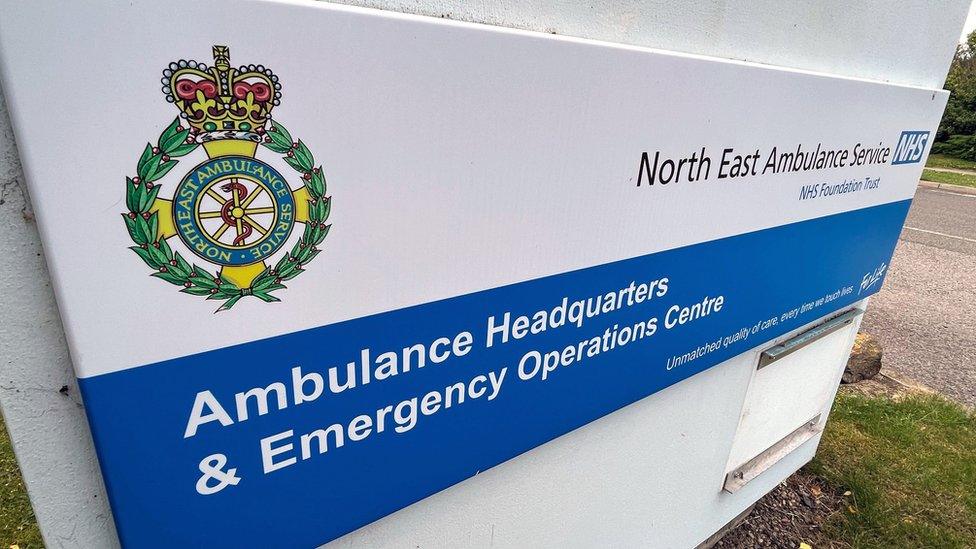
The review into North East Ambulance Service was announced by the government last August
Dame Marianne Griffiths paid tribute to the families for sharing their testimonies.
"It is clear that they are not only devastated by the loss of their loved ones but also by the ambulance service's response to the legitimate questions about their care," she said.
"The families' primary motivation remains to spare others this pain."
She added the NEAS "co-operated fully" with the investigation and the current executive team was "committed to making the recommended changes".
NEAS chief executive Helen Ray said she had written to the families involved to apologise and invited them to meet in person, adding that the 15 recommendations were being "actioned at pace".
"There were flaws in our processes and these have now either been addressed or are being resolved. We are grateful the report recognises that we have a new leadership team committed to addressing the issues," Ms Ray said.
She added governance, systems and processes relating to investigations and coronial reports had been "strengthened" and resources had been increased allowing issues of concern to be "easier to be flagged".
Earlier this month, health watchdog the Care Quality Commission (CQC) identified improvements to NEAS services were needed during a fresh inspection of emergency and urgent care services.
However, the CQC said NEAS had made "some improvement" and moved its rating from "inadequate" to "requires improvement".

Have you been affected by the issues raised in this story? You can share your experiences by emailing haveyoursay@bbc.co.uk, external.
Please include a contact number if you are willing to speak to a BBC journalist. You can also get in touch in the following ways:
WhatsApp: +44 7756 165803
Tweet: @BBC_HaveYourSay, external
Please read our terms & conditions and privacy policy
If you are reading this page and can't see the form you will need to visit the mobile version of the BBC website to submit your question or comment or you can email us at HaveYourSay@bbc.co.uk, external. Please include your name, age and location with any submission.

Follow BBC North East & Cumbria on Twitter, external, Facebook, external and Instagram, external. Send your story ideas to northeastandcumbria@bbc.co.uk, external.
Related topics
- Published7 July 2023
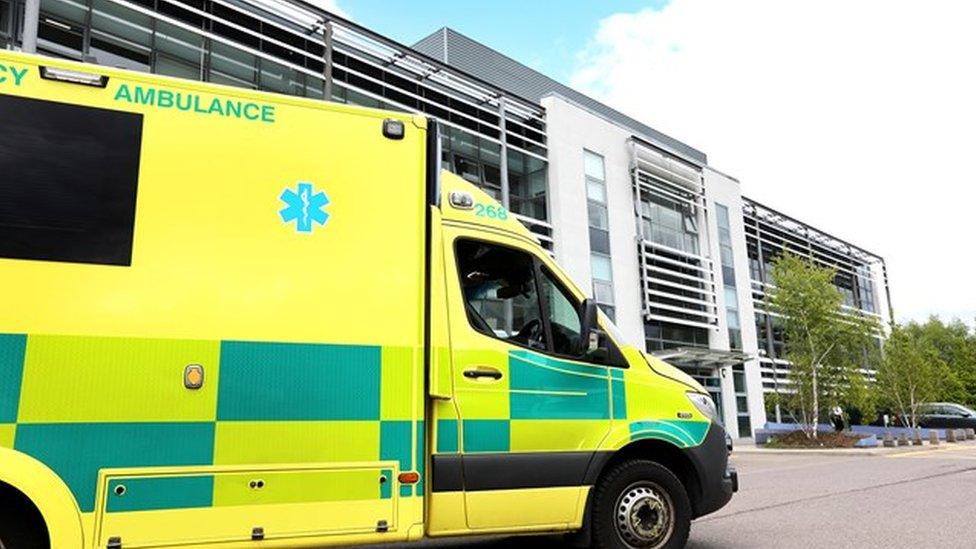
- Published2 February 2023
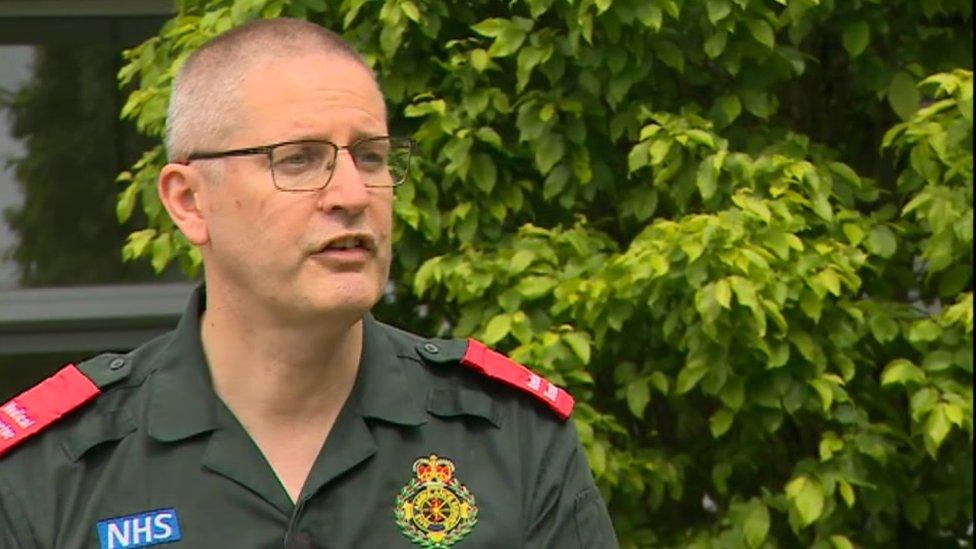
- Published20 December 2022
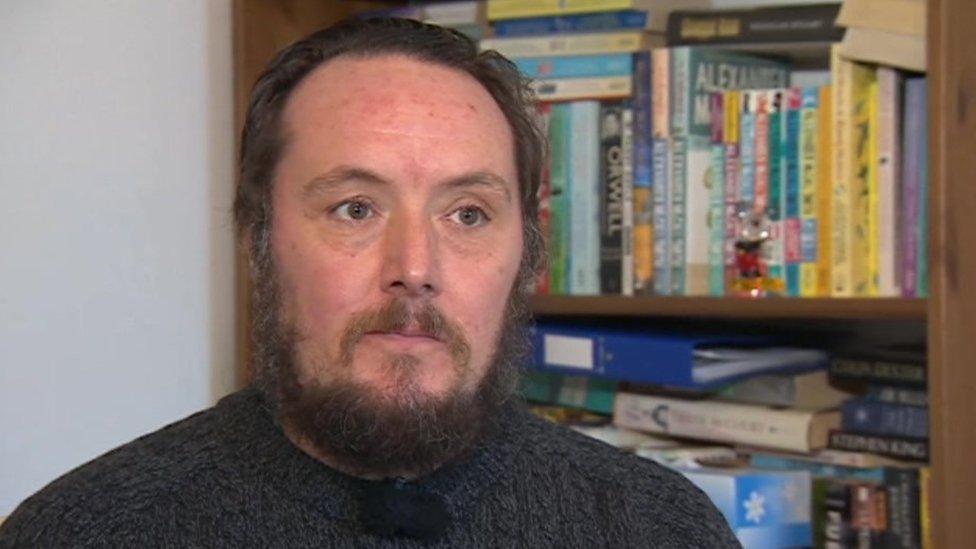
- Published10 June 2022

- Published23 May 2022
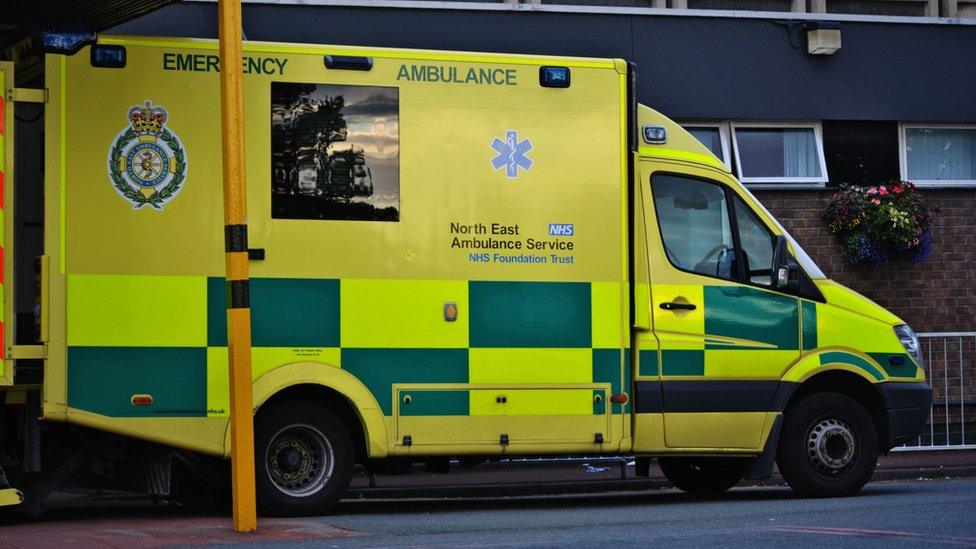
- Published19 January 2023
